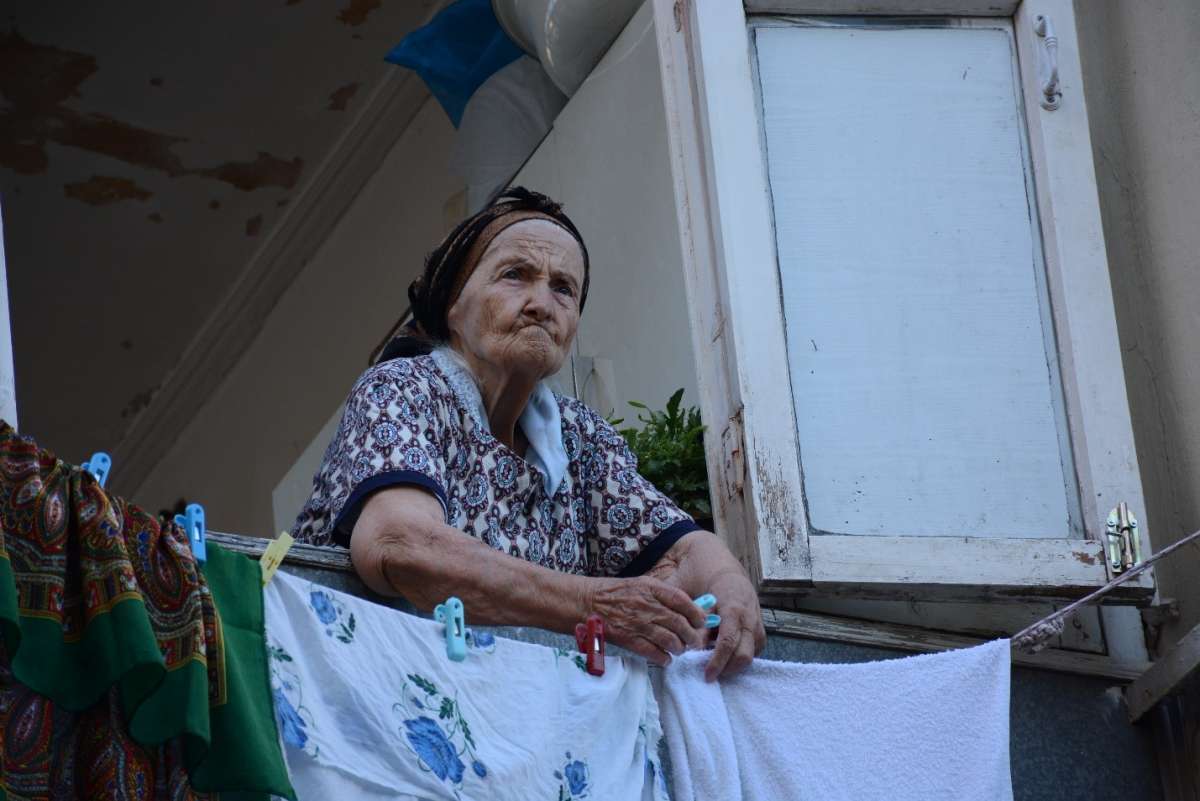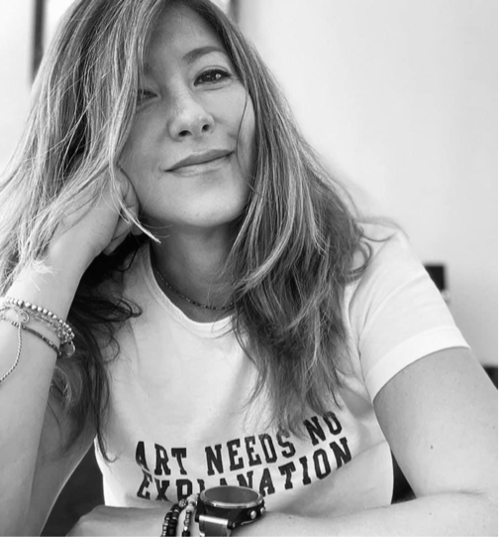- Home
- A Protector – Does Your Grandma Have One?
A Protector – Does Your Grandma Have One?
Should our grandparents live with us or in a nursing home? If only we could ask "Baba Manya" her opinion...

Unlike Nailya’s nanny, Baba Manya, most seniors in Baku have a strong network of family and friends who make sure they have everything they need. Image: Sabir Memmedov/Shutterstock
As I get older, I’ve started to realize that the scariest thing about getting older is not so much the fact that you are nearing the end of this journey but that you might be alone at the end of it.
When I was young and brazen, I used to think that having children was not really that important and that getting married was truly overrated. These days, I realize there’s a big difference between being 25 and single and being 75 and all alone. The second makes you incredibly vulnerable.
Have you seen the 2020 movie “I Care a Lot”?
My boss said he wasn’t even able to finish watching it. It made him feel that uneasy. I did get through it, though I have to say it was of the most unpleasant films I’ve watched. In the film, a brilliant con artist played by Rosamund Pike, gets herself legally appointed as a guardian of lonely wealthy people and ensures they stay trapped in a senior’s home as she steals their money. I guess the reason that viewers feel so uneasy is that the scenario seems scarily plausible. It makes you realize that, even when you have money, being old and alone makes it easy to be fooled, robbed, or abused in many ways. And often, nobody can or will help, including the government.
Since this is a fictional story, one of the old, rich women that Pike’s character targets turns out to have a son in the Russian mafia. Big mistake. So, the viewer gets this great moment of satisfaction when the evil character realizes that the old lady was not someone she should have messed with. She had a protector.
To me, as an Azerbaijani, the idea of a protector makes sense. Where I grew up was a place where connections often meant more than money. This protector idea also makes me think of the differences between some Western cultures and Azerbaijan. Azeri people are raised to understand that looking after our geriatrics is a normal part of life. So, for Azerbaijani people, our family is the protection, even for those older people whose children live abroad, like me.
Family ties are incredibly important and strong. If you are a senior in Azerbaijan, you will probably have some children or other younger relatives who you can count on to never leave you on your own, the opposite of what happened to so many in that movie. Maybe because of that cultural aspect, there was never any need for nursing homes. The way Azerbaijani people view putting parents in a senior’s home is simple: you just don’t do it. Full stop. I hear things are slowly changing now, but most people would still not understand why anyone would place their parent in a nursing home. Mostly, Azerbaijani older people live with one of their children, and even if they live separately, they are well and continuously looked after.
But, as I was thinking about situations some might find themselves in, of having no close family when you are old, I remembered one particular memory from my childhood. As I grew up in post-Soviet Baku, there was one category of older ladies for whom I felt particularly sorry. Those were poor, lonely babushkas, usually ethnic-Russian older women left behind by their younger relatives who had emigrated to seek better lives abroad. Some had simply never got married and had neither children nor protectors.
However, just occasionally, someone who had appeared poor and lonely suddenly found that they had an entirely unexpected protector that nobody thought they had, just like in that movie.
That was this case for my childhood babysitter, Baba Manya. She was single, Russian, and had grown old and poor. I’m not exactly sure if she had family or what happened to them that she had been left totally alone, but that’s how things were. She lived in an area of town that used to ‘affectionately’ be referred to by locals as the “poo-ey neighbourhood.” In a small courtyard of similar dwellings, Baba Manya had her tiny but cozy shack. Despite the bizarre name, the area was quite homey, with little courtyards and a strong sense of community. There were a few well-known neighbourhoods like that one in Baku those days, and many people lived there for generations. But Baba Manya was alone, the only Russian in her yard, with quite a stubborn and proud personality, and the new neighbours clearly didn’t get along with her that well.
One day, she came to my mother in tears. The neighbours had put a gas stove out in the courtyard, cooking right outside her window. She asked them a few times to move it, and they simply laughed at her. What could a Russian babushka do to them, alone and with neither money nor connections? You see, connections matter. Probably everywhere, but especially in countries like mine.
But Baba Manya did know us. We, in turn, have a friend whose husband happened to be the chief of a local fire brigade. Imagine the shock of the Russian babushka’s uncaring neighbours when one day, a couple of fire officers showed up and fined them for breaking fire safety regulations. The joy that brought to my old nanny will be one of my happiest childhood memories. The satisfaction we, as a family, got from this little bit of protection we could give someone so helpless was priceless. It was more than the gifts or the money she had usually received from us. In hindsight, it was a protection that I understand should have been in place for people like her, provided by the government. But in those days, things weren’t that simple. And you needed connections to call for that help.
This is my biggest dream for my home country. That it becomes a society that looks after their elderly, those who are poor or sick but without connections, or those without a family to look after them. That, to me, would make a perfect society. A place where you know you can grow old alone and feel safe. Even when you don’t have a “protector.”
Read this next






